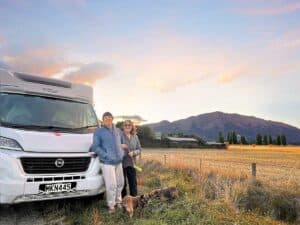This month marks two years on the road for us. There’s no question—selling up and leaving the constraints of conventional life behind is the best decision we ever made.

Back at the start, I had so many fears, which seem silly now. Even so, it hasn’t all been plain sailing. To say the past six months have been a challenge is an understatement.
If we had known when planning our new life what the future held just 18 months down the track, we would no doubt have shelved our dreams of travel. Thank goodness we didn’t, as we have since discovered we can handle pretty much anything—even in a tiny van!
Two ops in two weeks
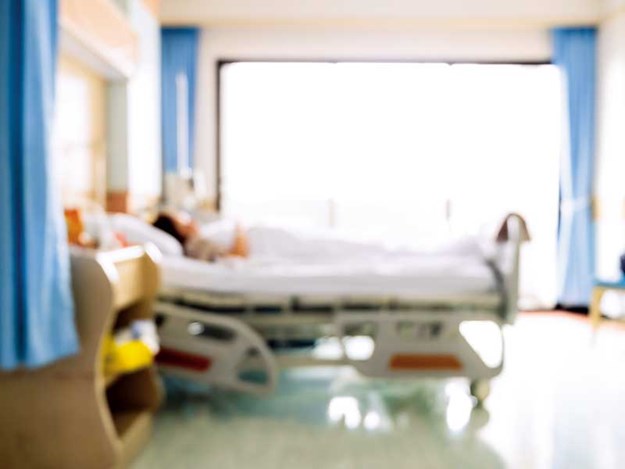
Winter passed in a bit of a blur this year. Instead of building snowmen, we spent most of it in hospitals and doctor’s waiting rooms, trying to get to the bottom of what on earth was wrong with me.
What started as occasional spells of unusual abdominal pain had become constant and debilitating to the point I was permanently bedridden. Months of countless tests eventually revealed a condition called adenomyosis, which required major surgery.
A few days later, a routine mammogram also showed I had the beginnings of breast cancer. Before I knew it, I had both surgeries just two weeks apart.
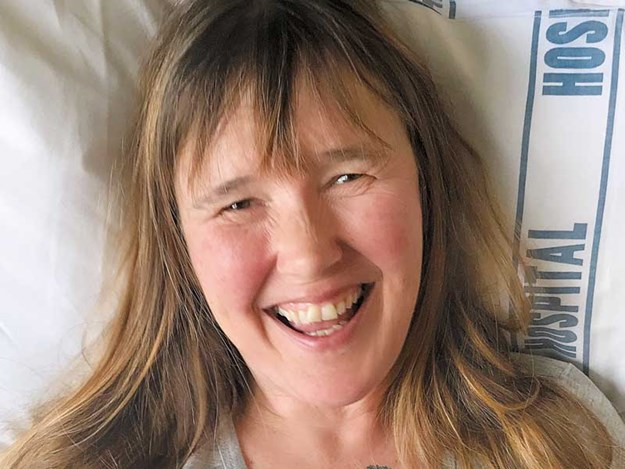 |
Last op done. Thank goodness that’s over! |
Going back to the van was daunting. I still had a long way to go until recovery and didn’t feel ready at all, but I needn’t have worried. If anything, I found it easier to rest up and recuperate in a small space.
Sadly, however, it wasn’t the end of my chronic pain and several weeks later, yet another culprit was found, in the form of a neuropathic condition called pudendal neuralgia.
I’ve had to get used to the fact that I may have this for life, but with a combination of medication and physiotherapy, it won’t prevent me from continuing our life on the road and living life to the fullest.
What if...?
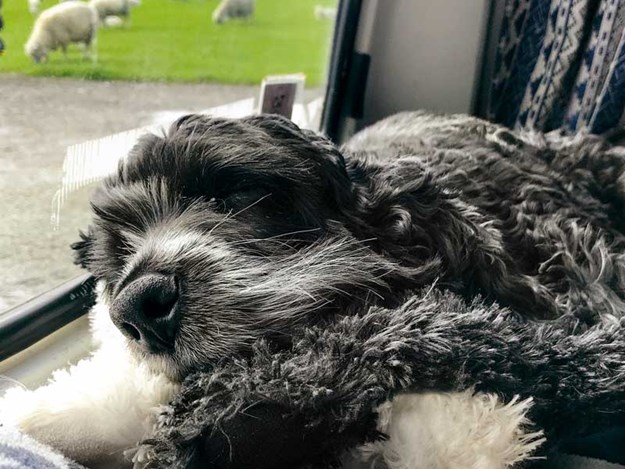 |
Minnie was worn out after her boarding kennel holiday! |
We often receive letters from readers who say, “We’d love to do what you’re doing, but are scared of what happens when things go wrong. What if we get sick?”
While this is completely understandable, we have met countless motorhomers who have made the decision to live on the road because of a health scare, such as cancer or a heart attack, and their recovery has spurred them to get out and make the most of each day. Indeed, they all swear that their new lifestyle has done them the world of good!
52 years living in harmony
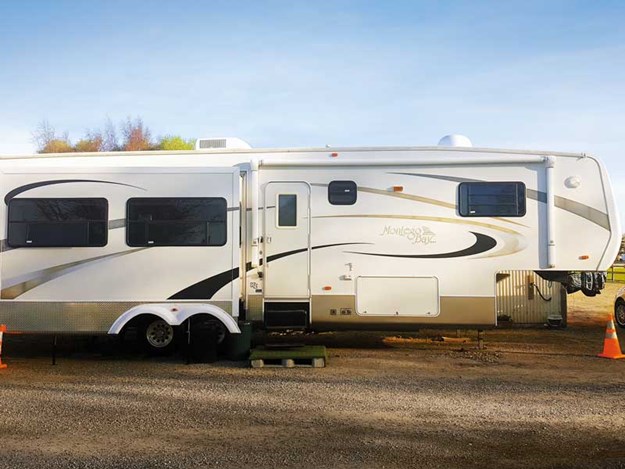 |
Margaret and Ivan’s Montego Bay fifth wheeler |
“Everything we’ve had, they’ve said can’t be done in a motorhome,” laughs Margaret Bates. Between her and husband Ivan, the pair have had two broken legs, a new hip, and open heart surgery, all while living in a mobile home. After 22 years on the road, it takes more than a few broken bones to faze these two.
A well-known and much-loved country singer, the show has always gone on for Margaret, even if it means hiding a broken leg under her keyboard.
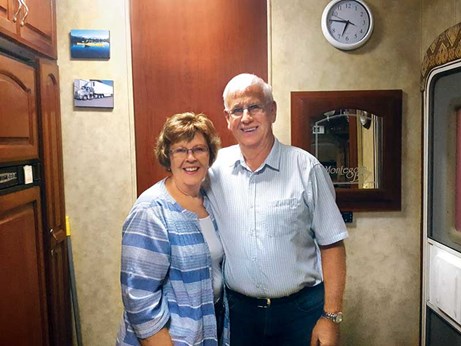 |
Margaret and Ivan have spent 22 of their 52 years together on the road |
Happily married for 52 years, the couple began their life together farming in Kapuka and Lake Waituna before running a motel in Invercargill. With their three children all overseas, they then took to the road, first in a 10-metre bus, then upsizing to their current Montego Bay fifth wheeler two years ago.
In their years on the road, they have worked a huge variety of jobs, including house/farm sitting to truck and forklift driving and even working through the night in minus four degrees foaling horses, as well as 14 summers at Leaning Rock Cherries in Alexandra.
Pear-shaped in Cromwell
Margaret’s music has taken them all over the world, as well as travelling the whole of New Zealand five times. “We plan our travels around Margaret’s shows and ended up with a good circuit. We’ve met a lot of wonderful people,” smiles Ivan. This became evident quite unexpectedly 18 months ago. After working all season, he and
Margaret were looking forward to a family get-together. All the children were arriving from overseas and meeting in Cromwell as a family motorhoming unit. Just half a day later, however, Ivan began experiencing back pain.
Feeling progressively worse, Margaret sent for an ambulance and soon he was on his way to Dunedin hospital. Before he knew it, Ivan was hearing the words ‘open heart surgery’.
He underwent a triple bypass. However, upon being discharged, there was just one problem. “We didn’t have the motorhome with us; it was still where we had left it!” Not only that, Margaret couldn’t drive the motorhome.
Fortunately, help was at hand. “A fellow motorhomer went and picked up our vehicle for us,” explains Ivan. “We had so many offers of help to drive it for Margaret and set it up at the other end. There are always plenty of helpers when things go wrong”.
What happens next?
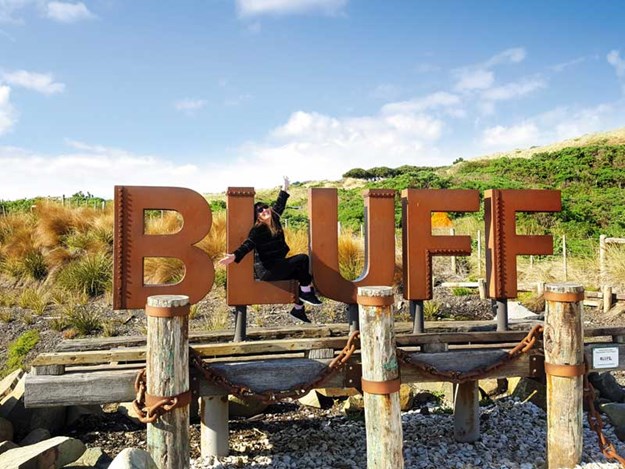 |
Nothing is going to stop me enjoying life to the fullest |
Even when Margaret had a broken leg, there isn’t the housework. Everything is easy-access when your mobility is limited. Another positive of a motorhome is you can park it wherever you need to be.” Although, Margaret admits that crutches weren’t much good back in the bus.
When asked the best thing about the lifestyle, Ivan doesn’t hesitate. “Meeting people and friendship,” he says.
“If you sit outside with a cup of coffee, someone will always come by and have a yarn. And I don’t have to go far to hug Ivan!” laughs Margaret.
Sometimes, the unthinkable does happen when you’re on the road. But it will do that wherever you are. Don’t let ‘what ifs’ stop you from achieving your dreams!
When there's a will, there's a way
Living on the road means we still face many of the same challenges as everyone else. Fortunately, our mobile lifestyle can often make things easier when disaster strikes. Here are a few tips we have found helpful these
past months.
- Enrolling saves at least 50%. If you know you will be staying in an area for several months, it definitely pays to enrol at the local medical centre. Doing this meant we only had to pay between $29 and $42 per doctor’s visit, compared to $86 for casual patients.
- Plan your travels around your treatment. The great joy of motorhoming is that it’s so flexible. Plans can change at the drop of a hat; no big deal! Wherever you can get medical treatment, you can get a place to stay close by. Many hospitals are happy for motorhomers to park up in their grounds in the case of a loved one being a patient; just check first.
- Customise your motorhome. Just as a house can be modified to make life easier for those with limited mobility, so can a motorhome. We’ve seen everything from a mechanical hoist for easy entrance and exit to systems, which can whiz you up and down a bus with ease.
- Discuss prescriptions with your doctor. Should you require long-term medication for an existing condition, talk to your doctor or pharmacist. On the whole, they are understanding of the lifestyle and are happy to prescribe extra to tide you over or fax prescriptions to wherever you are.
- Get the best of both worlds. If you want to get on the road but are nervous with your medical condition, look at travelling in shorter bursts. Choose a radius from your home base and start exploring everything around that radius. This allows you to come back for check-ups if you need to and builds up your confidence to be on the road with your medical condition.


